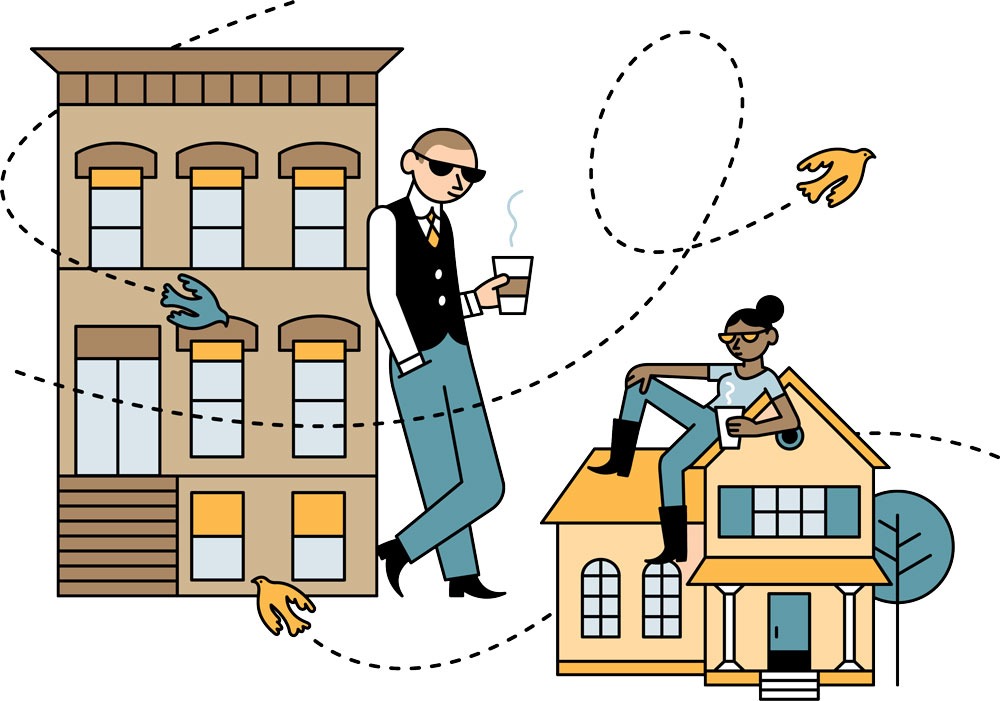Q: What are some of the unprecedented things you’re seeing as a result of the current red-hot conditions?
A: It’s kind of crazy how fast the market has been moving. We’re talking about a highly supercharged competitive market that’s being driven by incredibly low inventory.
Q: Where are the effects of soaring prices being felt the most in the Chicago area?
A: Let me give you an example. People love Naperville. But it’s superduper competitive. So some people are getting priced out of the market. A lot of times when people are looking for a place to call home, they’re looking at school districts. And guess what? Just to the south of Naperville is a great town called Plainfield. A lot of customers have gone over to Plainfield because a lot of Plainfield has the same school districts.

Q: So a savvy buyer can just say, OK, in the town next door I can get a lot of the same amenities for less?
A: Absolutely, but it’s moving really fast. I’m already seeing the competition even in the Plainfield area and a little bit into Bolingbrook as well.
Q: Should people avoid buying in this market, or is there a case to be made?
A: When you’re looking for a house where you know you’re going to hang your hat for the next 15 or 20 years, then move forward, because you’re not going to be worried about the short-term economic back-and-forth in the long run.
Q: How can prospective buyers make themselves more attractive to sellers?
A: New customers coming into the market should have already talked to a lender and gotten a fully underwritten preapproval. With the inventory being so low, they need to be fully prepared to actually make a purchase. But also, they’re going to have to make their first offer their highest and best offer. There might be another buyer that’s seen [the property] that’s going to jump on it. There are other things that can make their offers more competitive. We’re talking about an escalation rider, and the buyer being willing to go over ask. We’re talking about leasebacks. We’re talking about being flexible on close dates.
Q: In a seller's market like this, where are you still seeing the most opportunity for a good buy?
A: Start looking at nontraditional areas, like northwest Indiana. I wish there was a secret spot.
Q: What’s the best way for sellers to take advantage of the conditions?
A: One thing sellers need to be aware of is that rising interest rates affect them as well. They need to be prepared to go to that second offer if the first one gets cold feet because of interest rates — this is just the nature of the environment right now. We’re having a lot of sellers really pushing up the prices on their listings. If you’re asking for a price much higher than the market demands, it’s going to let you know quickly. You don’t want a bunch of price drops on your listing.
Q: When is the best time to sell?
A: You want to list your home when you have the most buyers on the market. That’s typically the spring to the early-summer months. But selling in the fall or winter should not be discounted. Not a lot of people are listing their homes at that time, so a lot of times that listing will be the only game in town, so they’re going to be able to attract a lot of nice offers. The best time for sellers to sell their home is when they’re ready to sell.
Q: Does it seem like the Chicago market is going to stay hot, or do you think we’ll see a correction?
A: We’re going to continue with this low inventory because new homes aren’t being built fast enough. It’s still going to be highly competitive because there’s just so much demand.



